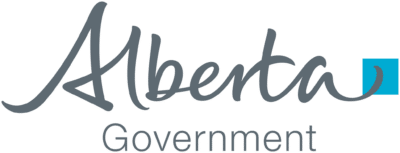In the dynamic landscape of small business, knowledge isn’t just power—it’s the key to making informed decisions that drive success. Market research is at the heart of this knowledge, a critical tool that sheds light on your target market, competition, and industry trends. This guide will introduce new entrepreneurs to market research, illustrating its significance in crafting a solid business plan and strategy.
Understanding Market Research
Market Research Defined
Market research is the process of collecting and analyzing data on your potential customers, competitors, and industry. This process involves researching the characteristics and needs of your target market, learning about the industry you operate in, and evaluating your competitors. By conducting this form of research, you can better understand consumer behaviour and identify market trends, providing you with the clarity needed to refine your business strategies and ideas. It’s not just about collecting data but making sense of it in a way that is useful and actionable for strategic decision-making.
Why Market Research Matters
Market research is a vital step of business planning for numerous reasons, especially when it comes to validating the appeal and necessity of your business idea. Many entrepreneurs question whether there’s an actual demand for their product or service and if it addresses an unmet need in the market. Market research provides the insights needed to make well-informed decisions by:
- Identifying Your Target Customers: It’s essential to grasp who your customers are, what they want, and how they decide to buy. This insight is fundamental to building your business strategy.
- Analyzing the Competition: Knowing who you’re up against helps pinpoint what makes your offering unique and how to position yourself in the market.
- Guiding Strategic Planning: Insights from market research play a critical role in developing marketing strategies and refining your product or service.
- Minimizing Risks: Decisions informed by solid research are more likely to avoid costly missteps, ensuring a smoother path for your business.
Conducting Market Research: Primary vs Secondary
Market research can be categorized into two main types: primary and secondary. Each approach is invaluable, offering unique insights through different methodologies to give you a well-rounded understanding of your target market.
Primary Market Research
Definition and Purpose:
Primary market research involves going straight to the source—your potential customers—to collect new data. It’s designed to uncover deep insights into consumer needs, preferences, and behaviours, offering clarity on how your business can best serve them.
Research Methods:
Methods such as surveys, interviews, focus groups, and observations are essential to primary research. They allow for direct engagement with your target audience, providing insights that are specific to your research questions. Engaging directly with potential buyers or other businesses within your industry can yield invaluable information. This local, firsthand research brings to light the attitudes of potential customers, their purchasing triggers, and their reasons for choosing one product or service over another.
Pros:
- Highly tailored to your specific questions and needs
- Delivers up-to-date, firsthand information from your target market
- Facilitates direct interaction, fostering a closer connection with potential customers
Cons:
- Can be time-intensive and costly
- Requires specific expertise for effective execution and analysis
- Risk of lower response rates, which could impact the reliability of your data
Secondary Market Research
Definition and Purpose:
Secondary market research taps into data that has already been collected. This method provides a macro view of the market and industry trends, using information gathered by others to offer a broad perspective.
Research Methods:
This form of research is primarily conducted through online databases, industry reports, and market research firms. Secondary research often involves examining published materials online, including government resources, industry associations, and databases. While primary research focuses on local insights, secondary research expands its reach, offering data from a wider geographical area and broader market trends.
Pros:
- Typically more cost-effective and quicker to access compared to primary research
- Offers a comprehensive overview of the market and industry
- Provides immediate access to a wide range of data
Cons:
- May not address your business’s specific questions with tailored responses
- Risks relying on data that may be outdated or less relevant
- Limited control over the quality and specificity of the data
Understanding how primary and secondary research complement each other is vital for entrepreneurs as it ensures a thorough understanding of the market. Secondary research can efficiently provide a broad overview and quick insights, whereas primary research digs into the specifics, offering detailed information on consumer preferences and behaviours. Together, they provide a well-rounded scope of your target market, an essential step for making informed business decisions.
Final Thoughts
Navigating the world of market research might seem complex, but there’s a wealth of online tools and resources that can simplify the journey. For primary market research, where you’re seeking direct interaction with your audience, platforms like SurveyMonkey, Google Forms, and social media polls are incredibly useful. Whereas for secondary market research that requires a broader data perspective, free resources such as Statistics Canada can be quite helpful, offering a good foundation of insights. While many specialized databases can be expensive to access, Business Link offers secondary market research services at no cost, ensuring Alberta’s small business entrepreneurs have access to the resources they need without the additional fees
Have Questions?
At Business Link, we’re dedicated to helping Alberta entrepreneurs navigate the complexities of business planning with confidence and ease. Our team of small business experts provides free one-on-one advice to empower you with the knowledge and tools needed to start and grow your business. Contact us today to learn how we can help set your small business up for success.





